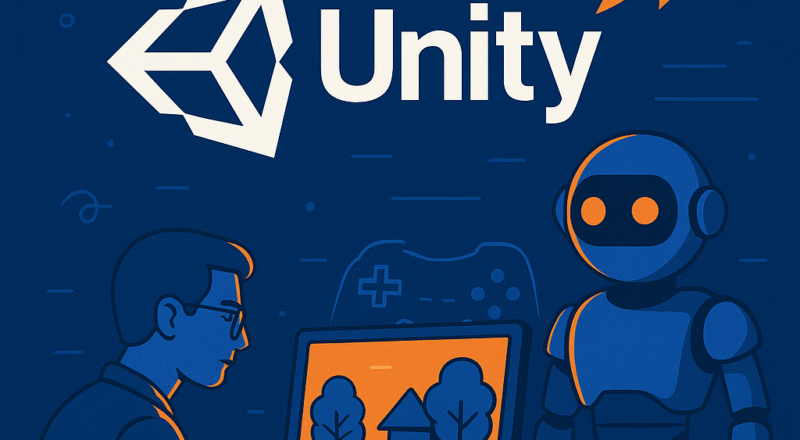In the ever-evolving world of video games, Unity has emerged as one of the most powerful and versatile game engines. From indie developers to AAA studios, Unity enables creators to design visually stunning and technically advanced games across multiple platforms. As the demand for high-quality gaming experiences grows, more studios are partnering with Unity game development companies to accelerate production, reduce costs, and bring innovative ideas to life.
What Makes Unity So Popular?
Unity’s popularity stems from its flexibility and user-friendly interface. It supports 2D, 3D, AR, and VR game development, making it one of the most adaptable tools in the industry. The engine’s extensive asset store, vast documentation, and active developer community empower teams to create games faster and more efficiently.
Unity also offers cross-platform capabilities, allowing developers to deploy their projects seamlessly across PC, console, mobile, and even web platforms. This versatility saves both time and resources while maximizing audience reach.
The Role of Unity Game Development Companies
Building a successful game involves much more than coding and design. It requires storytelling, artistry, optimization, and quality assurance. This is where Unity game development companies come into play. These specialized studios provide end-to-end development services or specific components of production, depending on the client’s needs.
Their teams typically include Unity-certified developers, 3D artists, animators, sound designers, and project managers who work collaboratively to transform concepts into fully functional games. Whether it’s creating an immersive VR simulation or a fast-paced mobile shooter, outsourcing development to experienced Unity professionals ensures both technical excellence and creative depth.
Advantages of Hiring Unity Game Development Companies
- Expertise and Experience:
Partnering with professionals who specialize in Unity ensures high-quality results. These experts are familiar with Unity’s architecture, rendering pipeline, scripting (C#), and optimization techniques that can make a game run smoothly even on limited hardware. - Cross-Platform Development:
One of Unity’s greatest strengths is its ability to export games to multiple platforms. Outsourcing studios leverage this feature to help clients reach audiences across iOS, Android, Windows, PlayStation, Xbox, and VR devices without rewriting the entire codebase. - Cost and Time Efficiency:
Hiring a full in-house development team can be expensive and time-consuming. Outsourcing allows businesses to pay only for the required services, accelerating production timelines and reducing overhead. - Focus on Core Vision:
By outsourcing technical or art-related aspects, publishers and studios can focus on their core vision—storytelling, marketing, and game design—while Unity experts handle the heavy lifting. - Access to Advanced Tools:
Many Unity development studios integrate additional tools such as Photon for multiplayer, Cinemachine for dynamic cameras, and URP/HDRP for enhanced graphics. This access to professional-grade technology ensures a competitive edge.
Key Services Provided by Unity Game Development Studios
1. Full-Cycle Game Development
Some companies offer complete solutions—from concept creation to launch. This includes pre-production planning, asset creation, coding, level design, testing, and post-launch support.
2. AR and VR Experiences
Unity’s engine is highly popular for augmented and virtual reality projects. Many Unity game development companies specialize in building interactive VR simulations, educational apps, and AR marketing campaigns that merge entertainment with technology.
3. Game Porting and Optimization
Porting a game from one platform to another can be technically complex. Unity outsourcing firms handle optimization and adaptation, ensuring the gameplay, performance, and visuals remain consistent across devices.
4. UI/UX Design and Animation
User interface and experience design are critical in determining how players interact with a game. Unity experts create intuitive interfaces and smooth animations that enhance immersion.
5. Quality Assurance (QA) and Testing
QA is vital to the success of any game. Specialized studios perform functional, performance, and compatibility testing to detect and fix bugs before release.
How to Choose the Right Unity Partner
Selecting the right outsourcing partner requires careful consideration. Start by examining the company’s portfolio, client testimonials, and technical expertise. Ensure that their previous projects align with your genre, target platform, and artistic vision.
Additionally, effective communication is crucial. Reliable Unity development partners provide transparent workflows, regular progress updates, and flexible collaboration models. Using tools like Jira, Trello, or Slack helps maintain alignment between internal and external teams.
Challenges in Unity Outsourcing
While outsourcing offers numerous benefits, it also presents potential challenges. Time-zone differences, language barriers, and project management inefficiencies can affect progress. To mitigate these risks, companies often establish detailed project documentation, milestone-based contracts, and shared asset repositories.
Moreover, maintaining brand and creative consistency requires clear design guidelines and frequent iteration. Leading Unity game development companies are aware of these dynamics and implement structured communication to ensure the client’s vision remains intact.
The Future of Unity Game Development
With continuous updates, Unity remains at the forefront of innovation in the gaming world. Its integration with AI, real-time ray tracing, and cloud collaboration tools is shaping the future of interactive entertainment.
As more industries—from education to architecture—adopt gamified experiences, the demand for skilled Unity developers will continue to rise. Outsourcing will remain a key strategy for studios seeking flexibility, innovation, and global collaboration.
